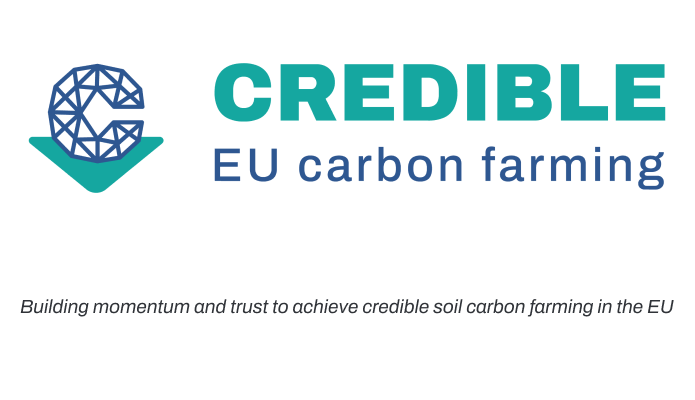
The first-ever European Carbon Farming Summit hosted by the EU-funded CREDIBLE project (www.credible-project.eu) convened in Valencia (Spain) in March 2024 a vibrant community of over 600 professionals, organisations and enthusiasts dedicated to carbon farming and soil management. The event highlighted the community’s strong commitment and enthusiasm for recognising the potential of carbon farming. Carbon farming presents exciting opportunities, with long-term benefits being uncovered through collaboration and innovative techniques, as well as challenges for successful implementation. EARSC actively led the discussion about the role of Earth Observation on Carbon farming and follow this exchange with experts on a monthly basis. If you would like to engage, please reach out to info@earsc.org
EO4CarbonFarming
The event provided some key insights: i) The EU Carbon Removal Certification Framework is a crucial component of Europe’s strategy to achieve net-zero emissions by 2050. The objective of this framework is to set the standards and guidelines for certifying and verifying these carbon removal methods, ensuring they meet the required environmental and technical criteria. ii) Measuring and monitoring are crucial for assessing the impact of any mitigation action, and carbon farming follows the same logic: climate claims linked to shifting agricultural management must be proven and validated. This is needed to offer clear quantification guidelines covering both soil emission reduction units and sequestration units, while at the same time acknowledging the impermanent nature of biogenic carbon. Proper and continuous monitoring ensures that the claimed carbon removals are genuine and verifiable. This not only serves as a technical requirement but is also fundamental in establishing trust and credibility in the carbon credit market among investors, policymakers, and the public. iii) The necessity of a harmonised approach to carbon credit certification across Europe. The current fragmented methods of certification create inconsistencies and uncertainties in the carbon credit market. iv) Farmers are central to the success of carbon farming initiatives. Their knowledge, skills, and on-ground experience are invaluable for implementing effective carbon sequestration and emission reduction practices. Complementary financing mechanisms and incentives need to be explored and farmers should be empowered through education, training, peer-to peer learning and ongoing support is crucial to accelerate the adoption and scaling of carbon farming practices across Europe. v) Carbon farming is a diverse and context-specific solution. Localised strategies and landscape-level initiatives, involving collaboration with local stakeholders such as communities, landowners, and agricultural organisations, are vital. These initiatives foster trust, enable better adaptation to diverse farming landscapes, and ensure that carbon farming practices are both effective and sustainable.
By embracing a multi-actor approach, encouraging collaboration among stakeholders, and implementing progressive and responsible policies, Europe can fully unlock the potential of carbon farming, positioning it as a cornerstone of its sustainability strategy. As we transition from theory to action, one thing is clear: the future of carbon farming in Europe is promising, but it demands concerted effort, innovation, and collaboration to realise its full potential. Would you like to join the conversation? Sign up to be informed about the next Carbon Farming Summit in Ireland in March 2025 (sign up).
